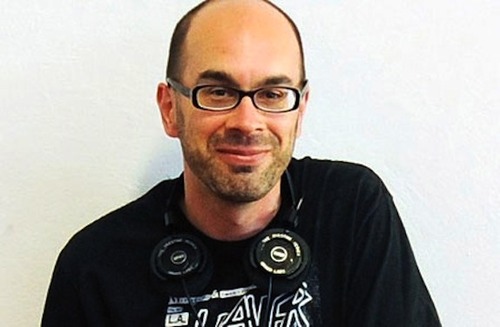No one would accuse Michael Robbins’s debut poetry collection, Alien vs. Predator, of failing to attract much-deserved critical attention. Indeed—ever since Mr. Robbins was plucked from relative obscurity by the New Yorker’s poetry editor Paul Muldoon—he has become something of a sensation, a member of that perpetually-dying-breed: the serious contemporary poet who is also widely known, discussed, and read among the general public.
But it would be fair to say that some aspects of Mr. Robbins’s poetry receive significantly more attention than others. Critics seem particularly smitten with Mr. Robbins’s adroit appropriation of popular culture. Almost invariably the media tends to point out that his poems mention the rapper Jay-Z, that he positively reviewed Taylor Swift’s newest album in Spin magazine, etc. It’s not that this is beside the point, but it is far from the only point. Robbins is an accomplished critic and scholar, not only steeped in “the canon” but he is also deeply committed to addressing certain “matters of permanent concern” as Saul Bellow (another notable Chicagoan man of letters) might have said.
It was in this spirit that we sent Mr. Robbins a few questions by e-mail about the failings of “secular liberalism,” a strain of thought that he often unflinchingly critiques in his darkly visionary poetry and trenchant essays.
—Joel Rice

You’ve publically taken issue with “the New Atheists” and aired several grievances with “secular liberalism” more generally. Correct me if I am mistaken, but it is an attitude of “certainty”—religious or secular— that you take particular issue with. Why, as a poet, do you feel it important to raise this issue?
I more or less agree with the philosopher Peter Unger: “Everybody is always ignorant of everything.” Unger says this in the course of making a case for universal skepticism; I’m not inclined to follow him there. But intellectually, I was trained in what Ricoeur called “the hermeneutics of suspicion”—Marx, Nietzsche, Freud: these giants never tire of reminding us that we don’t know ourselves. The only thing we can be certain of is that much of what we believe will turn out to be wrong (and we can’t even be sure of what we believe: as Wittgenstein said, “Perhaps you believe you believe it!”). So, yes, I stand before ontological mystery in something like awe, understanding almost nothing, set against scientism and religious fundamentalism alike. Poetry is many things, but one of the primary things it is is a way of thinking. One certainty we are familiar with today is the certainty that consumer capitalism is all there is: the only realistic form of economic life, now and forever, amen. In a very anti-discursive...
You have reached your article limit
Sign up for a digital subscription and continue reading all new issues, plus our entire archives, for just $1.50/month.
Already a subscriber? Sign in




